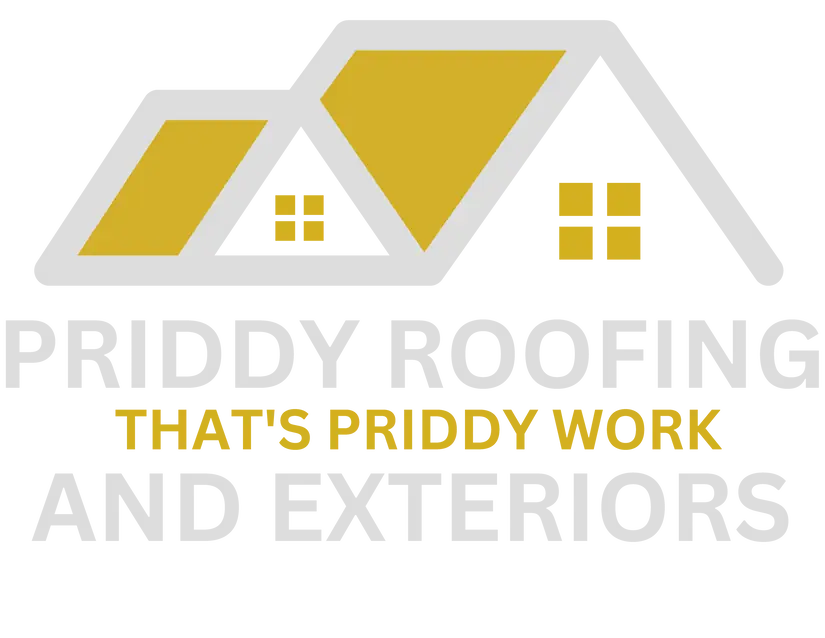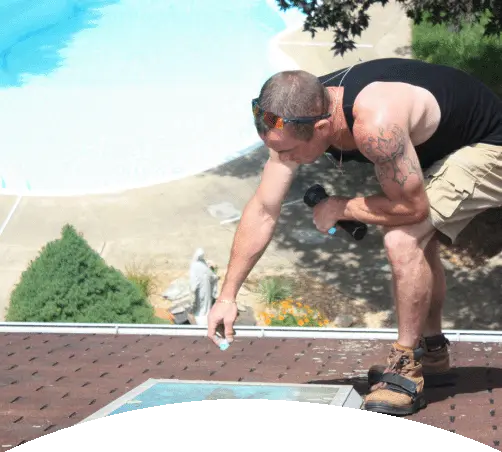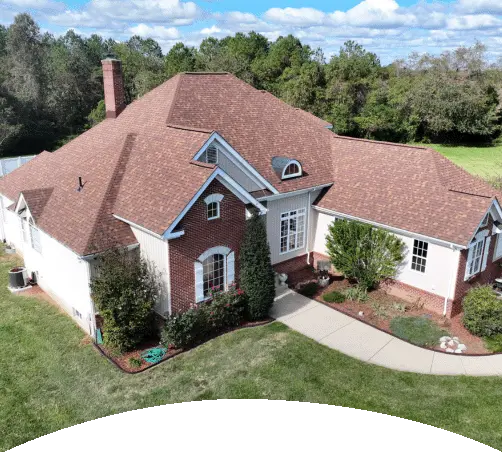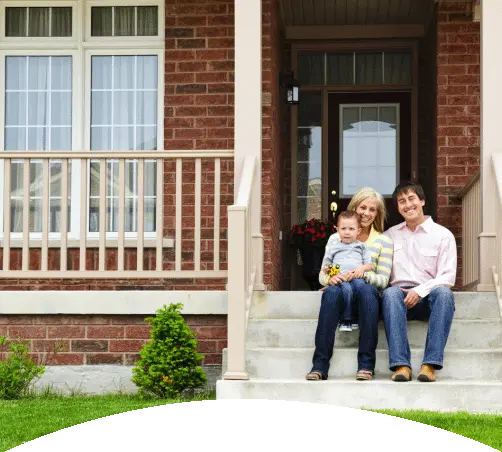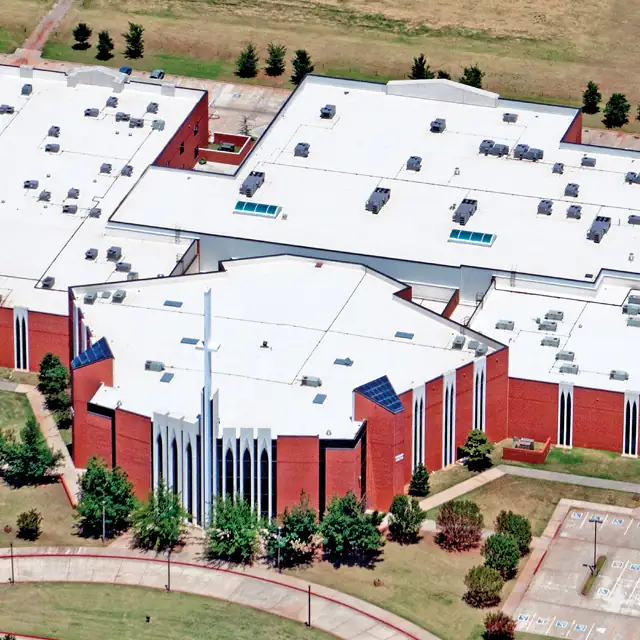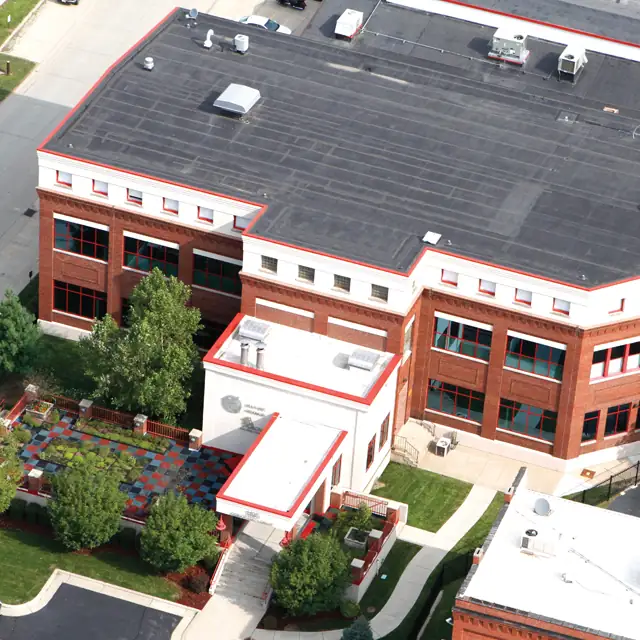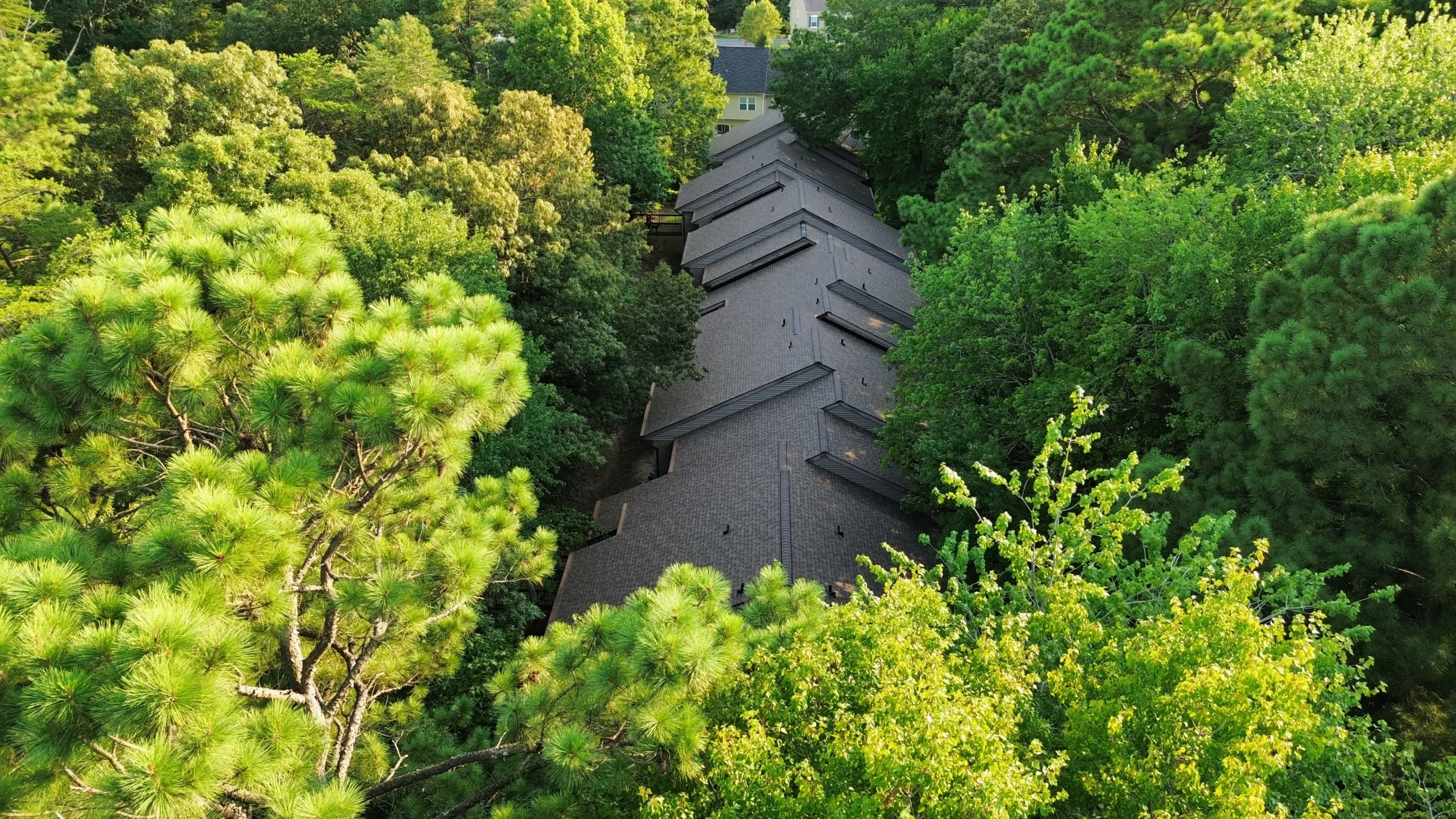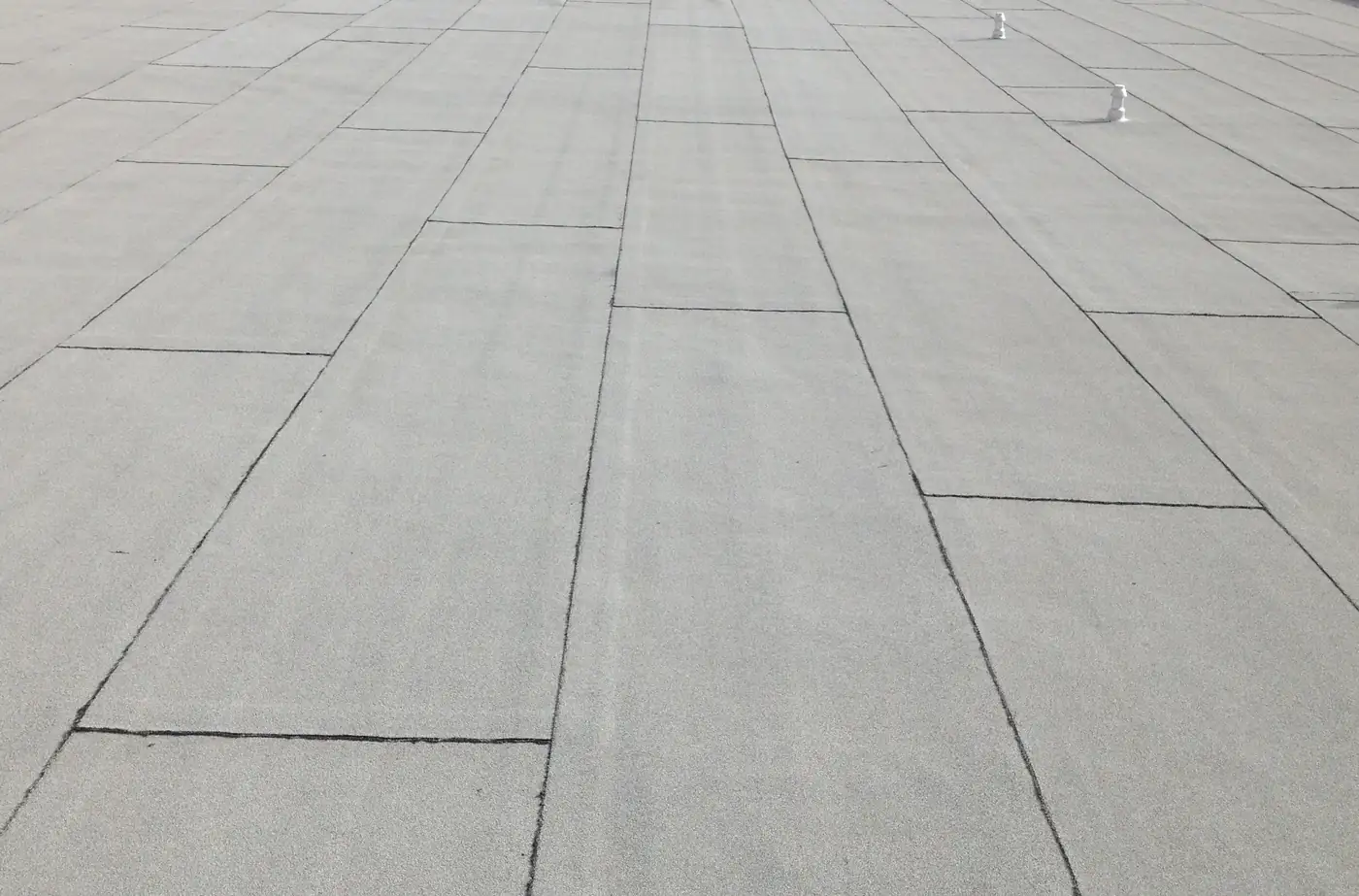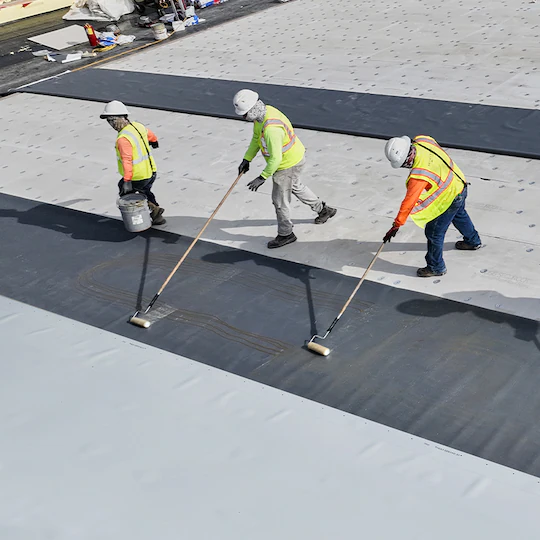Commercial Roofing For Property ManagersBuilding ManagersHOA CommunitiesApartment Buildings
Managing properties means dealing with problems before they affect tenants or bottom lines. A leaking roof, failing siding, or clogged gutters can quickly lead to costly repairs, complaints, or worse—damage that affects leases or business operations.
We help property managers and building supervisors stay ahead by providing dependable roofing and exterior services across the Mid-Atlantic. Whether you’re managing a retail site, apartment building, or mixed-use complex—we deliver high-performance systems that reduce your workload and protect your investment.
3 Steps to Get Back More Time
Flat, Steep, or Storm-Damaged—We’ve Got You Covered
We work with all major commercial roofing systems—TPO, EPDM, modified bitumen, metal, and asphalt. Whether you’re managing a retail property or a multi-building residential complex, the goal is the same: reduce complaints, extend lifespan, and protect what’s inside.
TPO
EPDM
Asphalt Shingles
Modified Bitumen
PVC
TPO Roofing
Great for flat or low-slope buildings that need energy efficiency and durability.
TPO stands for Thermoplastic Polyolefin—a single-ply white membrane that reflects heat and resists UV damage. It’s commonly used on flat commercial roofs like retail stores, warehouses, churches, and apartment buildings with low-slope roof sections.
TPO is heat-welded at the seams, forming a watertight barrier. It’s resistant to mold, dirt buildup, and punctures, making it a solid choice for long-term performance. It also offers excellent energy efficiency by reflecting sunlight and reducing cooling loads inside the building.
Best for: Flat roofs, retail centers, office buildings, apartment complexes with low-slope areas.
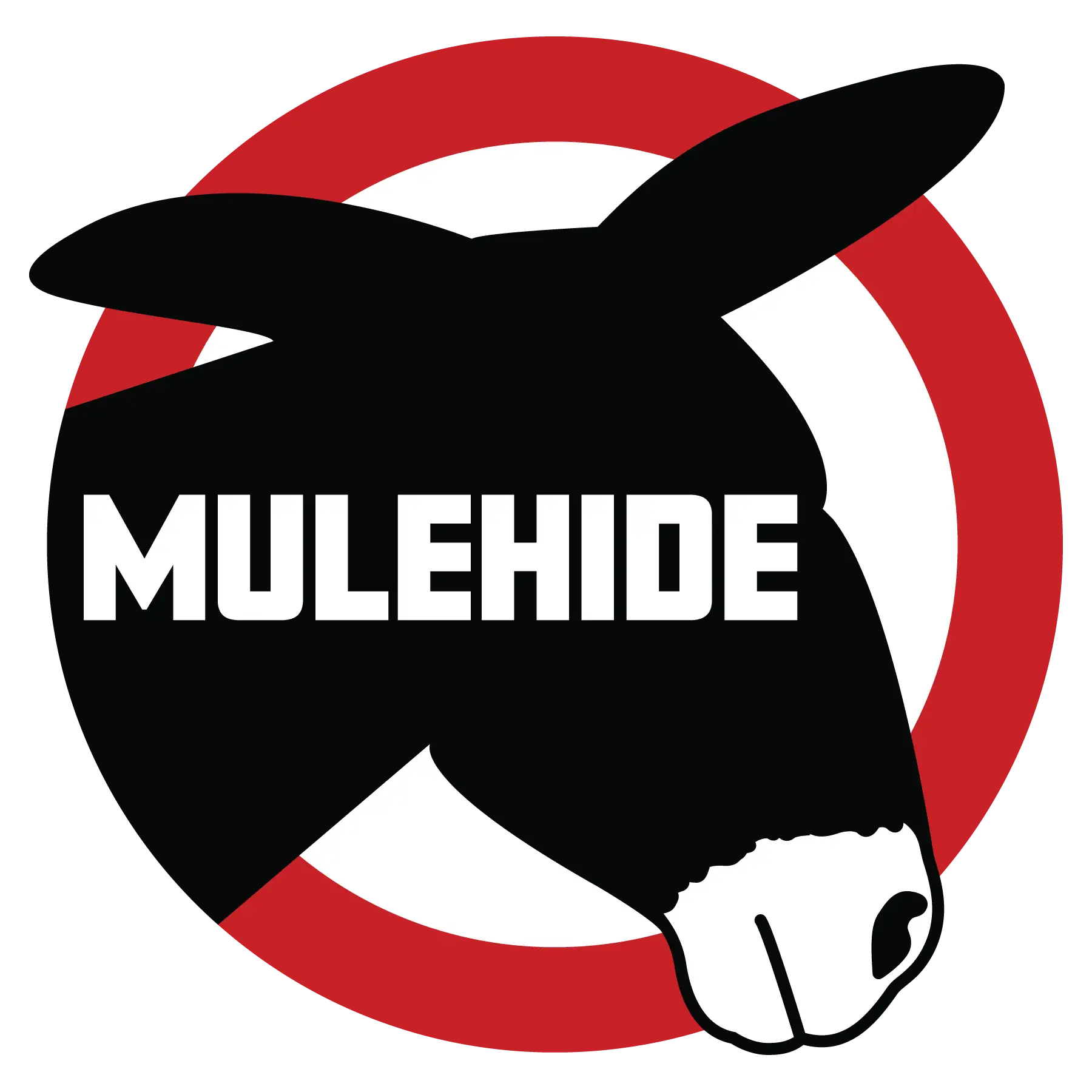
EPDM Roofing
Flexible, proven, and ideal for larger flat-roof surfaces.
EPDM stands for Ethylene Propylene Diene Monomer—a synthetic rubber roofing membrane known for its flexibility and durability. It’s been used in commercial roofing for decades and performs well in extreme temperatures.
This material is especially useful for roofs with lots of movement or expansion and contraction. It’s usually black, which helps melt snow and ice, but white options are also available.
Best for: Warehouses, commercial buildings with lots of rooftop equipment, budget-conscious large-scale installs.
Asphalt Shingles
Cost-effective, familiar, and suited for steep-slope structures.
Asphalt shingles aren’t just for residential homes—they’re often used on steep-slope commercial buildings like apartment complexes, churches, and small office buildings. Architectural shingles provide better durability and wind resistance than standard 3-tab shingles and come in a wide range of colors.
They’re affordable, relatively quick to install, and easy to repair when needed—making them a smart option for property managers looking for long-term value.
Best for: Multi-family housing, sloped commercial buildings, HOAs, and small-to-mid-sized business structures.
Modified Bitumen
Tough, layered protection for flat or low-slope roofs.
Modified bitumen is an asphalt-based system that’s reinforced with fiberglass or polyester for added strength. It’s typically installed in multiple layers using heat, adhesives, or self-adhering sheets. This system offers excellent resistance to heavy foot traffic and harsh weather.
It’s a great option for buildings that need extra toughness—like facilities with rooftop access or where debris and impact might be a concern.
Best for: Schools, industrial buildings, medical facilities, or any roof with heavy wear and tear.
PVC Roofing
A Tough, Chemical-Resistant Option for Flat Roofs
PVC stands for Polyvinyl Chloride, and it’s a single-ply roofing membrane known for its strength, flexibility, and ability to handle tough environments. Like TPO, PVC is a white, reflective system that’s heat-welded at the seams to create a watertight bond. Where PVC stands apart is in its resistance to grease, oils, chemicals, and even fire—making it an ideal choice for buildings that need more than just basic weather protection.
This system performs well in extreme temperatures, holds up against rooftop foot traffic, and delivers long-term energy savings by reflecting sunlight. For buildings where durability and chemical resistance are critical—like restaurants, food processing facilities, and industrial buildings—PVC can be a smart investment.
We install PVC systems from leading manufacturers like GAF, whose products are trusted across the industry for their performance, longevity, and strong warranty options.
Best for: Restaurants, commercial kitchens, industrial buildings, and flat-roof properties exposed to harsh materials or environments.
TPO
EPDM
Asphalt Shingles
Modified Bitumen
PVC
TPO Roofing
Great for flat or low-slope buildings that need energy efficiency and durability.
TPO stands for Thermoplastic Polyolefin—a single-ply white membrane that reflects heat and resists UV damage. It’s commonly used on flat commercial roofs like retail stores, warehouses, churches, and apartment buildings with low-slope roof sections.
TPO is heat-welded at the seams, forming a watertight barrier. It’s resistant to mold, dirt buildup, and punctures, making it a solid choice for long-term performance. It also offers excellent energy efficiency by reflecting sunlight and reducing cooling loads inside the building.
Best for: Flat roofs, retail centers, office buildings, apartment complexes with low-slope areas.

EPDM Roofing
Flexible, proven, and ideal for larger flat-roof surfaces.
EPDM stands for Ethylene Propylene Diene Monomer—a synthetic rubber roofing membrane known for its flexibility and durability. It’s been used in commercial roofing for decades and performs well in extreme temperatures.
This material is especially useful for roofs with lots of movement or expansion and contraction. It’s usually black, which helps melt snow and ice, but white options are also available.
Best for: Warehouses, commercial buildings with lots of rooftop equipment, budget-conscious large-scale installs.
Asphalt Shingles
Cost-effective, familiar, and suited for steep-slope structures.
Asphalt shingles aren’t just for residential homes—they’re often used on steep-slope commercial buildings like apartment complexes, churches, and small office buildings. Architectural shingles provide better durability and wind resistance than standard 3-tab shingles and come in a wide range of colors.
They’re affordable, relatively quick to install, and easy to repair when needed—making them a smart option for property managers looking for long-term value.
Best for: Multi-family housing, sloped commercial buildings, HOAs, and small-to-mid-sized business structures.
Modified Bitumen
Tough, layered protection for flat or low-slope roofs.
Modified bitumen is an asphalt-based system that’s reinforced with fiberglass or polyester for added strength. It’s typically installed in multiple layers using heat, adhesives, or self-adhering sheets. This system offers excellent resistance to heavy foot traffic and harsh weather.
It’s a great option for buildings that need extra toughness—like facilities with rooftop access or where debris and impact might be a concern.
Best for: Schools, industrial buildings, medical facilities, or any roof with heavy wear and tear.
PVC Roofing
A Tough, Chemical-Resistant Option for Flat Roofs
PVC stands for Polyvinyl Chloride, and it’s a single-ply roofing membrane known for its strength, flexibility, and ability to handle tough environments. Like TPO, PVC is a white, reflective system that’s heat-welded at the seams to create a watertight bond. Where PVC stands apart is in its resistance to grease, oils, chemicals, and even fire—making it an ideal choice for buildings that need more than just basic weather protection.
This system performs well in extreme temperatures, holds up against rooftop foot traffic, and delivers long-term energy savings by reflecting sunlight. For buildings where durability and chemical resistance are critical—like restaurants, food processing facilities, and industrial buildings—PVC can be a smart investment.
We install PVC systems from leading manufacturers like GAF, whose products are trusted across the industry for their performance, longevity, and strong warranty options.
Best for: Restaurants, commercial kitchens, industrial buildings, and flat-roof properties exposed to harsh materials or environments.
Serving Property Managers Across the Mid-Atlantic
From shopping centers and apartment complexes to office buildings and mixed-use properties, we help you solve roofing problems before they escalate. We understand the communication and coordination you need—and we deliver it without the hand-holding.
Project Spotlight: Sugar Maple Apartments, California, MD
This multi-building apartment complex suffered hail and wind damage, requiring full roofing replacement across more than 15,000 square feet of surface area. We worked closely with property management and Erie Insurance to coordinate the full exterior restoration, including:
Tear-off and replacement of over 150 squares of shingle roofing
New ice and water barrier, underlayment, and ridge cap systems
Replacement of all metal fascia, step flashing, and drip edge
1,641 LF of new seamless aluminum gutters and high-grade gutter guards
Replaced multiple roof vents, pipe jacks, and skylight systems
Tree debris removal, portable walkway protection, and safe project staging
Managed across 21 separate roof sections
We delivered the full scope on time with minimal disruption to residents, ensuring code compliance and long-term performance.
Your Partner in Property Management
You’re responsible for keeping buildings running smoothly—we’re here to make that easier. With proven systems, clear communication, and crews who show up and do it right, we help you stay ahead of exterior issues without the added stress. From first inspection to final walkthrough, you’ll have a partner who understands what property management really needs.
FREQUENTLY ASKED QUESTIONS
How do I know if it’s time to replace the roof on my building?
If you’re getting frequent leak reports, seeing standing water on flat roofs, or noticing signs of wear like cracked flashing or missing shingles, it’s time for a closer look. A professional inspection will identify if repairs can extend the life of the roof—or if a full replacement makes more financial sense long-term.
What kind of roofing system is best for my property?
It depends on your building type, roof slope, budget, and exposure to elements like grease, foot traffic, or extreme temperatures.
TPO is energy efficient and durable for most flat commercial roofs.
EPDM offers great flexibility and long-term performance, especially on large flat roofs.
PVC is ideal for properties exposed to chemicals or grease, like restaurants or industrial buildings.
We’ll walk you through each option and help you choose what fits best.
How long does a commercial roof last?
With proper installation and materials, commercial roofs typically last:
TPO & PVC: 20–30 years
EPDM: 25–30 years
Asphalt Shingles (steep-slope): 20–25 years
Lifespan also depends on the roof’s exposure, drainage, and ongoing care.
Do I need to shut down my building during roof work?
In most cases, no. We work in a way that minimizes disruption to tenants, customers, or daily operations. We’ll plan staging, access points, and timelines that work with your building’s use—whether it’s a retail store, apartment complex, or office space.
Can you work with insurance if the roof was storm damaged?
Because we’re certified with top-tier manufacturers like GAF, we offer some of the best warranties in the industry—ranging from 20-year system warranties to no-dollar-limit (NDL) options on select systems. We’ll go over what’s available based on your chosen material and system.
